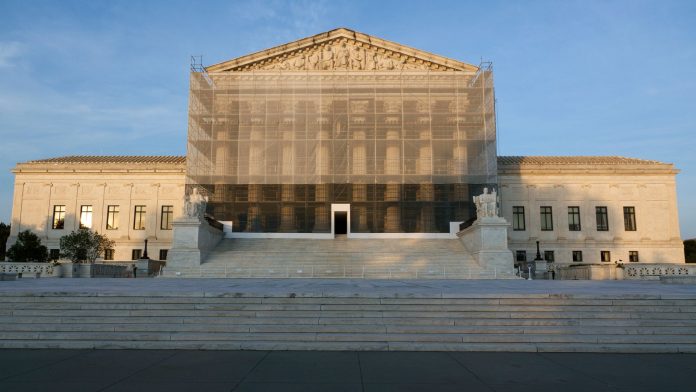The U.S. Supreme Court agreed to hear the case of Damon Landor, a former Louisiana inmate who says prison officials violated his religious rights by forcing him to cut his dreadlocks. The case stems from his time in the state prison system in 2020.
Lawsuit says Louisiana prison violated religious rights
The case reached the Supreme Court after an appellate court blocked Landor’s lawsuit against the Louisiana Department of Corrections and Public Safety, ruling that he could not seek monetary damages from prison officials under the federal law that protects the religious rights of inmates. The full Fifth Circuit of Appeals agreed that Landor was mistreated but dismissed his claims and provided no relief.
Landor was serving a five-month sentence in several Louisiana state prisons. At two of the facilities, he said his Rastafarian beliefs were respected. However, that changed, he claims, after he was transferred to Raymond Laborde Correctional Center, northwest of Baton Rouge. There, prison guards allegedly restrained him and cut off the dreadlocks he had been growing for nearly 20 years.
The growing of his hair falls under the Nazarite Vow that says, “let the locks of the hair of his head grow.”
Laws protecting religious freedom
Congress has passed two closely related laws aimed at protecting religious freedom: the Religious Freedom Restoration Act of 1993 and the Religious Land Use and Institutionalized Persons Act of 2000, known as RFRA and RLUIPA.
SCOTUS points to a decision from 2020, Tanzin v. Tanvir, when justices ruled that individuals can sue government officials personally for damages under RFRA when their religious rights are violated.
Although the two religious freedom laws were passed years apart, their language is nearly the same. Now, the Supreme Court is being asked to decide whether people can personally sue government officials for violating the land use and prisoner rights law, just as they can under the broader religious freedom law.
Previous court rulings have dismissed First Amendment challenges to barring religious practices in prison.
Lawyers for Louisiana asked SCOTUS to not hear case
On May 22, lawyers for Louisiana prison officials urged SCOTUS not to take up the case. In a filing, the state argued that the law is too vague to support such claims and points out that nearly every federal appeals court agreed. They also criticized the federal government for switching its stance multiple times over the years, saying it had previously told the court the opposite, that damages were not allowed.
The state’s brief argues the case doesn’t raise any new legal questions and that there’s no disagreement among the lower courts that would justify Supreme Court review. Officials say this isn’t just about religious freedom, it’s about limits on Congress’s power to attach financial liability to state officials under spending laws. They warn that hearing the case could mislead the public into thinking it’s about broad religious liberty when it’s really a narrow legal issue that’s already been settled in most courts.
Support from Department of Justice
On May 7, the Department of Justice submitted a filing urging the Supreme Court to hear Landor’s petition. The DOJ argued that the lower court’s decision conflicts with several previous Supreme Court rulings and misinterprets the law protecting religious rights in prison. They say that the court’s reasoning could be seen as striking down part of a federal law, which alone is a strong reason for the justices to step in.
They argue this issue comes up often and matters because many religious freedom claims, especially those filed after someone is released or transferred, can’t be resolved with anything other than money. In this case, Louisiana officials admit they violated the inmate’s rights and aren’t claiming immunity, but the courts still dismissed the case. Without monetary damages, people whose rights were clearly violated might never get justice, which goes against the law’s intent.
The Supreme Court is expected to hear arguments during Fall 2025 and issue a decision sometime after.

